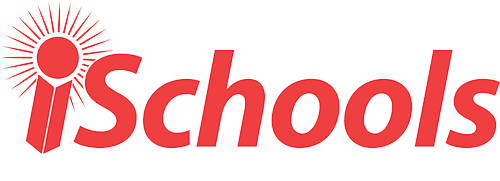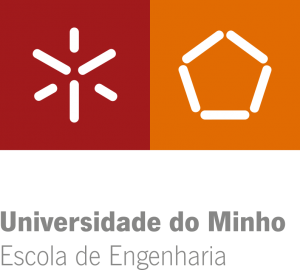Industrial Electronics (IE)
Areas
The Industrial Electronics (IE) RG congregates 79 researchers (37 PhD and 42 MSc) and is promoted by the Department of Industrial Electronics (DEI) at the University of Minho. The department works on the area of Electronics and Computer Engineering, offering several teaching programmes in the domain.
The IE RG also (co-)coordinates five Masters degrees with a high employability rate due mainly to the research-driven approach adopted within the graduate and post-graduate courses.
IE researchers are organized in three main areas:
- Control, Automation and Robotics (CAR);
- Energy and Power Electronics (GEPE);
- Embedded Systems (ESRG).
They work cooperatively with other RGs in ALGORITMI and other national and international centres.
The CAR main areas of expertise and active research are Robotics, Automation, Vision and Control, namely the development of: neuro-dynamic control architectures to endow autonomous robots with cognitive skills necessary for intelligent behaviour and human-robot and robot-robot interaction; learning schemes for social robotics; mechatronics prototypes systems for the manufacturing industry and innovative biomedical devices.
The GEPE main research fields are centered in the development of power electronics applications to energy systems, namely: Power Quality Conditioners; Low Cost Power Quality Monitoring Systems; Optimized Interfaces for Renewable Energy Systems with the Power Grid; Power Electronics Systems for Electric and Hybrid Vehicles; Power Electronics solutions for Railway Systems.
The ESRG main research is focused on developing embedded systems (Things) for the IoT. Namely secure IoT edge devices (hardware-software co-design with energy and cost limitations) using ARM TrustZone reinforced with other security oriented hardware technologies for guarantying a secure boot, endpoint identity and secure updates.
Impact of research
In terms of research metrics IE researchers have published 4.04 papers and articles (Scopus indexed) per integrated researcher and year.
Three major contributions
1) Internationalization activities
The IE research members were involved in internationalization activities, including the participation in international research networks and scientific committees, organization of international scientific events and membership of scientific committees in journals and conferences. Some examples are:
-The Mobile and Anthropomorphic Robotics (MAR) Lab is member of European Clearing House for Open Robotics Development;
-Network of Excellence “EuCognition- European Network for the Advancement of Artificial Cognitive Sytems”;
-Network of Excellence “EURON- European Robotic Research Network”;
-Participation in the Evaluation panels of EU calls: ICT26 – System abilities, development and pilot
installations;
-ICT25-Advanced robot capabilities research and take-up;
– H2020 ICT 25-27-28: ICT25;
-Advanced robot capabilities research and take-up;
– ICT27-System abilities, SME & benchmarking actions, safety certification and ICT28 – Robotics Competition, coordination and support;
-JU Members of the S2R – shift2rail – Swi’Tracken consortium;
-Participation in the “European Commission: Smart Grid Laboratories Inventory”;
-Guest editor of the journal special edition “Power Electronics and Power Quality” for the journal Energies;
-President of CIS (Computer Intelligent Society) IEEE Portugal;
-Participation in the organization committee of ISAmI 2017;
-Participation in technical committees of int. confs: ICEE, IEEE S3C, ICWN, ICEEE, ITA,etc.;
-Partnerships and agreements (PhDs and Staff exchange) with several Universities: Aarhus; Asian Institute of Technology; Jilin University; Royal Univ of Phnom Penh; Wurzburg; Zhuhai College.
2) Funded R&D projects
Members of IE RG were involved in 24 projects securing 8.3 MEUR (79 KEUR per integrated researcher and year). These include EU FP7 projects, such as:Turntake-Turn-Taking in Human-Robot Interactions: a Developmental Robotics Approach, NETT-Neural Engineering Transformative Technologies, DOCA-Detection of Oil in Compressed Air, Digistone-Digital Concrete Screen for outdoor digital signage applications, Carestore-Seamless Healthcare Device Marketing and Configuration.
The great majority of the funded projects include industrial companies as partners, providing a way of technology transfer, resulting in either new products or new processes. Some key examples are the projects with Industry, such as “PLASCOAT: Innovative and environmentally friendly metallization of plastics by PVD and plasma-assisted CVD, DV-HV-6000 – High Voltage Wiring Harness Test Equipment. Other projects were developed in cooperation with SMEs.
3) Doctoral Programs
The IE coordinates the PhD Programme in Electronics and Computer Engineering (29 PhDs successfully completed 2013-17). The IE is strongly involved in other PhD Programmes: Biomedical Engineering; Advanced Engineering Systems for Industry and the International PhD iRail, Innovation in Railway Systems and Technologies.
Main Publications in 2013-17
Sousa, E., Erlhagen, W., Ferreira, F., & Bicho, E. (2015). Off-line simulation inspires insight: a neurodynamics approach to efficient robot task learning. Neural Networks, 72:123-139 (ISI JCR Q1 in Artificial Intelligence; Scimago SJR Q1 in Artificial Intelligence; 4 Scopus and 7 Google Scholar citations).
algoritmi.uminho.pt/downloads/IE-01.pdf
Alves, F. S., Dias, R. A., Cabral, J. M., Gaspar, J., & Rocha, L. A. (2015). High-resolution MEMS inclinometer based on pull-in voltage. Journal of Microelectromechanical Systems, 24(4):931-939 (ISI JCR Q2 in Electrical & Electronic; Scimago SJR Q1 in Electrical and Electronic Engineering;
7 Scopus and 13 Google Scholar citations).
algoritmi.uminho.pt/downloads/IE-02.pdf
Pinto, J. G., Monteiro, V., Gonçalves, H., & Afonso, J. L. (2014). Onboard reconfigurable battery charger for electric vehicles with traction-to-auxiliary mode. IEEE Trans. on vehicular technology, 63(3):1104-1116 (ISI JCR Q2 in Electrical & Electronic; Scimago SJR Q1 in Electrical and Electronic Eng.; 30 Scopus and 39 Google Scholar citations).
algoritmi.uminho.pt/downloads/IE-03.pdf
IE Coordinator: Vítor Monteiro
IE Links:
IE Research Groups:
- GEPE (Energy and Power Electronics)
- CAR (Control, Automation and Robotics)
- ESRG (Embedded Systems Research Group)
Recent IE Publications:



